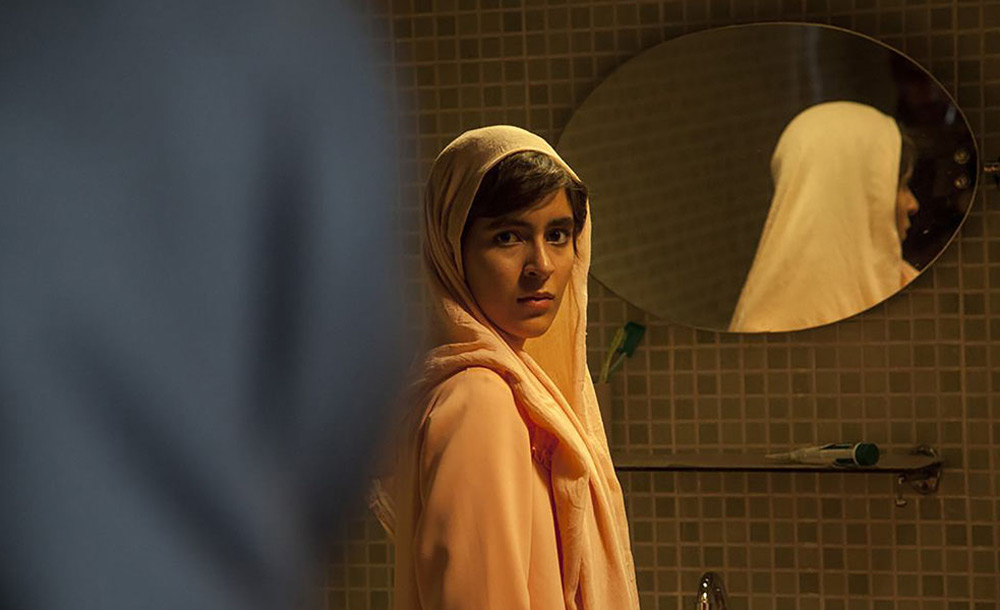Every picture tells a story in Sadaf Foroughi’s knockout feature debut “Ava,” but it’s defining moment may come from a sound. Its teen protagonist Ava (Mahour Jabbari) can be seen preparing for a violin recital with piano accompaniment, playing a sophisticated concert piece that sounds sweet to the amateur ear, yet angers her teacher, who believes Ava’s been wasting her time with poor timing and labored playing that sounds like “ding, ding ding.” The demand for perfection ignores what’s right in front of the teacher, which is beautiful in its own right, but no doubt the belief that there’s only one correct way to play the piece was ingrained in the teacher by her own teacher, echoing the equally long-held notion that in Tehran, where “Ava” is set, there is only one right way to be a woman.
With an Asgard Farhadi-esque command of a complex narrative, but boasting a gift all her own for arresting visual compositions, Foroughi effortlessly alludes to the damaging cultural conditioning of women in Iran to see themselves as less than equals in her snapshot of a young violinist who yearns to get out from under the thumb of her ultra-strict mother (Bahar Nouhian), with whom trust has completely eroded since being taken in for an exam to ensure her virginity’s intact. Yet contrary to other films that often emerge from the Middle East, this toughness comes not from religious belief, but the fact that she’s a doctor, one who likely feels that if her daughter is ever to attain similar heights, she needs to become more focused on her studies, giving up music and adhere to societal norms so as not to stand out. Ava’s father (Vahid Aghapour) is far more permissive, encouraging their daughter to follow her passion, but in the process creates a tug-of-war in the house as he attempts to be a peacekeeper.
Still, Ava’s father can’t keep his eye on the two all the time, often away on out-of-town assignments because of his job as well as Ava’s penchant for sneaking out under false pretenses to feel independence. Cinematographer Sina Kermanizadeh films these confrontations with as much drama in the images as in the words, as the frame is usually partitioned in such a way so as to reflect who is listening in on a conversation, who is tuning out and who is feeling as if they’re aren’t part of the dialogue, even if they’re the one speaking, through shrewd blocking and angles. However, the considerable style never distracts, only serving to amplify the intricacies of the story and the characters Foroughi has so richly drawn, as loyalties continually shift with the lens.
Although Foroughi keeps her focus tight, the film narrative stirs as it unremittingly spirals out, creating a web of intrigue that comes to include Ms. Dhenkhoda, the mafia don-like headmaster at Ava’s all-girls’ school who sees her students as informants to reinforce the social order; Nima (Houman Hoursan), the male pianist who she tells neither her friends or family about the exact nature of their relationship to considerable consternation; and Melody (Shayesteh Sajadi), Ava’s closest confidante who abruptly stops coming to school. While Jabbari ably carries the film with a stoicism beyond her years while allowing a teenage impulsiveness to bring an unpredictability, everyone who appears onscreen makes an impression, owing to both canny casting and the attention to detail paid with the bursts of personality placed into the costumes, the production design and evocative lighting. Nouhian is particularly strong in a tricky role as Ava’s mother, able to show the natural similarities she has with her headstrong daughter, fierce yet continually wounded by both Ava’s disobedience and her own suppression of her natural instincts.
One can’t say, however, that Foroughi can identify with the latter as the passion for the story she’s telling in “Ava” is dripping off every frame. Sympathetic to even the most misguided characters before her lens, the filmmaker’s desire to see what makes people tick reveals a big heart and in “Ava,” it never stops beating.
“Ava” does not yet have U.S. distribution. It will play at the Toronto Film Festival on September 17th at 6:30 pm at the Bell Lightbox 4.




